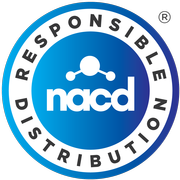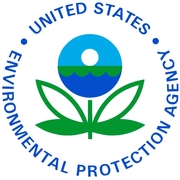
Today, November 8, is National STEM Day, and now more than ever we must recognize the need to foster our youth to pursue careers in the sciences. Science, technology, engineering, and mathematics (STEM) job opportunities in the U.S. are growing. As we look to the future of our economy and our workforce, STEM education – and specifically chemistry – is a critical part of driving innovation to improve and advance our everyday lives.

Over the last few years, some members of Congress have emphasized the need for reforming our nation’s health care system. While many efforts were aimed at dismantling Obamacare, doing so has not proven easy. Republicans, particularly in the Senate, were unable to find a consensus on a path for reform. In response, President Trump took matters into his own hands through an executive order directing federal agencies to find ways to increase competition and lower costs through association health plans.

In celebration of this year’s National Chemistry Week, NACD joined with the American Chemical Society and the American Chemistry Council to hold the first-ever Chemistry Expo on Capitol Hill, bringing members of our industry together with members of the Congressional Chemistry Caucus to highlight innovations in the industry and STEM education.

Earlier this week, I was invited by the White House along with 100 other leading trade association executives to attend an event highlighting the efforts made by the Trump administration to reduce the regulatory burdens businesses continue to face. This “Cut the Red Tape Summit,” which featured most of President Trump’s Cabinet and senior staff, was led by Vice President Mike Pence and highlighted efforts by the administration to halt the extraordinary growth of the Code of Federal Regulations from the 1960s to today.

The recent improvised bomb explosion on an underground London train has rekindled concerns about the security of the international chemical supply chain. Reports indicate terrorists utilized volatile precursor chemicals to make triacetone triperoxide (TATP) for the bomb they planted in a plastic bucket inside a carrier bag. Questions from the media and others in Europe are now centering on the regulatory framework governing the sale and use of TATP and other chemicals and how to ensure the integrity of the chemical supply chain remains as secure as possible.

As I write this nearly 8-months into President Trump’s term, I continue to scratch my head wondering why so little progress has been made between his administration and leaders of both political parties on Capitol Hill. In talking with NACD members, most are equally frustrated with the lack of progress. Many support a number of the President’s top initiatives but wince at how his social media discourse has denigrated the legislative process when addressing these issues. While the president has done a commendable job of reducing the bureaucracy, especially at EPA under Administrator Pruitt, little has been accomplished the first three quarters this year legislatively. And that is not good at all.

Our NACD family is hurting – in Texas and Louisiana. The good news so far is that in talking to a number of our members in the areas affected by Hurricane Harvey, they and their employees are safe and accounted for. We all pray that they remain safe until this storm passes and the recovery and rebuilding process begins in earnest. And on behalf of NACD’s Board of Directors and entire membership, I want to thank all those first responders and citizens who have demonstrated incredible resolve and heroism to help out the folks affected by this historic storm.

In an industry sector primarily made up of small businesses facing tight profit margins, it is critical that companies streamline inefficiencies and constantly look for ways to be doing things better. Of course, sometimes that means you have to look at the numbers to see where you can shave costs and boost revenue. Sometimes you evaluate individual employee performance and make adjustments. But increasingly, it means you should be taking a look at the makeup and composition of your team.

If you listen to the media these days, it seems like Washington is breaking apart at the seams. While it’s true that DC certainly has plenty of issues to work on right now, including tax reform, if you dig a little deeper you’ll find that policymakers are doing some great things that don’t often get covered in the press. A perfect example of this is the work members of the bipartisan Congressional Chemistry Caucus are doing to advance the knowledge and importance of chemistry in everyday life.

Recently, the U.S. Environmental Protection Agency (EPA) announced a new policy that requires all 10 regional offices to secure approval from headquarters before initiating contact with companies that could be subject to enforcement action for a potential violation. When learning about this development, my initial reaction was why this hasn’t been the case all along? One of the biggest issues with government bureaucracy is that there are simply too many layers of red tape leading to regulatory inaction.